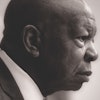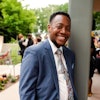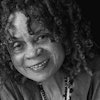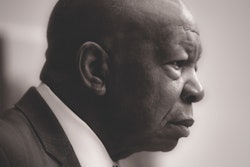HONOLULU—
With a focus on paying homage and respect to the land, culture, and people of Hawaii, more than 5,500 higher education practitioners gathered here this week for the annual convening of the National Conference of Race and Ethnicity i(NCORE) in Higher Education.
NCORE has morphed into the go-to place for students, faculty, staff, and activists who are concerned about the state of race relations in society in general, and on college campuses in particular.
The recent campus protests and encampments around the war in Gaza has prompted discussion and is a focus of many of the workshop sessions taking place throughout the week. Scholar-activists have called into question the use of police force, for example, on campuses like Columbia University, Princeton University, UCLA, and the University of Texas at Austin. Dr. Melina Abdullah
Dr. Melina Abdullah
With the attacks on diversity, equity and inclusion programs and the dismantling of affirmative action, the state of race relations in higher education is in peril, said many of this year’s participants.
“We have the collective power to affect meaningful change,” said Dr. Belinda Biscoe, senior associate vice president for outreach at the University of Oklahoma, the organizer of NCORE. “We must confront the challenges ahead, as we seek to build bridges, create dialogue and create lasting change in the landscape of higher education.”
For two decades, Biscoe has led NCORE’s efforts, helping to grow the conference into a safe space for student organizers to strategize alongside faculty, administrators and community activists.
As evidence of the growing popularity of the conference, more than 1,400 proposals were submitted—doubled the number of past years—for workshop sessions on a variety of topics including the need to better serve Native students.
In a session Wednesday titled, “Heeding Our Sacred Duty: Navigating the Dynamic Journey for Racial and Social Justice in Higher Education,” Dr. Melina Abdullah, professor of Pan-African Studies at California State University, Los Angeles shared her journey in higher education as a Black Lives Matter activist.
“Institutions have never been ours and if we’re smart, we’ll never be theirs,” said Abdullah, who is running as an independent for vice president of the United States with Dr. Cornel West, the prominent Black intellectual and professor at Union Theological Seminary. “We can’t be afraid of the repercussions for heeding our sacred duty. We have to do whatever needs to be done and be willing to face consequences.”
Abdullah pointed to the recent arrest of Dr. Tiffany Willoughby-Herard, an associate professor of African American Studies at the University of California, Irvine who was among three faculty members arrested during the police raid in the wake of protests against bombing of Palestine.
“Things have felt really, really heavy,” she said, adding that scholar-activists “have to ask ourselves, do we belong to the institution, or do we belong to our ancestors?” said Abdullah, who has been on the faculty at Cal State, Los Angeles for twenty years, including serving as chair of the Department of Pan African Studies.
“I’m not saying quit your job,” said Abdullah, a native of Oakland, Calif. “I’m not quitting my job, but I am not scared to get fired from it.”
She recounted an incident in 2022, when she was assaulted and forcibly removed from a campus auditorium by Cal State, Los Angeles police, after she attempted to attend a mayoral debate.
“They showed me I don’t belong to them, I belong to the people,” Abdullah said about the incident., adding that scholars of color have long been subjected to mistreatment within academe. “You can try and find a comfortable place if you want, but that place is never assured.”
Still, Abdullah said that she is encouraged that Pan African Studies, a major within the College of Ethnic Studies at Cal State, Los Angeles, has blossomed to nearly 87 majors and 300 minors. This growth, she said, has happened despite the dramatic decline in the number of Blacks attending the university in recent years.
The fight, Abdullah said, has to be consistent and ongoing.
“Fear and faith cannot occupy in the same space,” she added.
Jamal Watson can be reached at [email protected]















